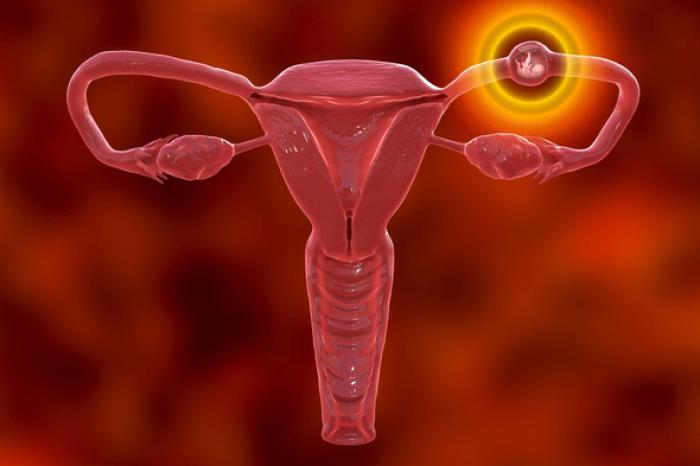
This post will explain to you what an ectopic pregnancy is and how to manage it in the safest way possible.
Ectopic pregnancy is a life-threatening pregnancy complication. It’s when the fertilized egg implants outside the uterus, and it occurs in 2 to 5 cases in 1,000 pregnancies.
The risk of ectopic pregnancy increases with older age, heavy menstrual periods, obesity, multiple sexual partners, and being underweight.
Women with a history of ectopic pregnancy may be more susceptible to develop another one later in their lives.
You’ll need to talk to your doctor, but the most common signs include:
- Pain in the lower abdomen, below the belly button, or in the pelvis
- Vaginal bleeding, usually a brownish discharge
- Vomiting, nausea, abdominal swelling, and pain
These symptoms are most common in the first couple weeks. After two to three months, there will usually be blood clots in the fallopian tubes.
Your chances of carrying the pregnancy to term are much lower than if you have a normal intrauterine pregnancy.
If the ectopic pregnancy ruptures, the most dangerous complication is shock, and there are also increased risks of infertility.
Here are the treatment options:
Medical Treatment
Medical treatment for an ectopic pregnancy is very similar to that of a regular pregnancy.
Antibiotics, which can lower your chances of having a miscarriage, are often prescribed.
For women who haven’t had a previous ectopic pregnancy, progesterone supplements and pelvic rest can be used.
Pelvic rest is sometimes combined with Mifepristone, a drug that helps to empty the fallopian tubes.
If you have no signs of an ectopic pregnancy, you may be able to wait it out.
Surgical Treatment
Another option is to go through a laparoscopic surgery.
The surgery is done by using a small tube, called a cannula, to puncture the stomach and create a pathway to the cervix.
This is a safer and less painful way to remove the ectopic pregnancy.
Tubal Ligation
The final option is a tubal sterilization (also known as salpingectomy).
A surgeon will remove the fallopian tube from the uterus and close it off.
Although you’re unlikely to get pregnant after this procedure, it can still lead to serious complications if a future pregnancy happens.
Conclusion:
An ectopic pregnancy can occur at any age, but it is most common in women between the ages of 15 and 24. This condition can be very dangerous if not treated quickly. If left untreated, the growing embryo can rupture and cause heavy bleeding, and may also lead to infertility and other complications. If you have an ectopic pregnancy, you should see your gynaecologist doctor in Indore as soon as possible to prevent a ruptured ectopic from causing severe complications.
